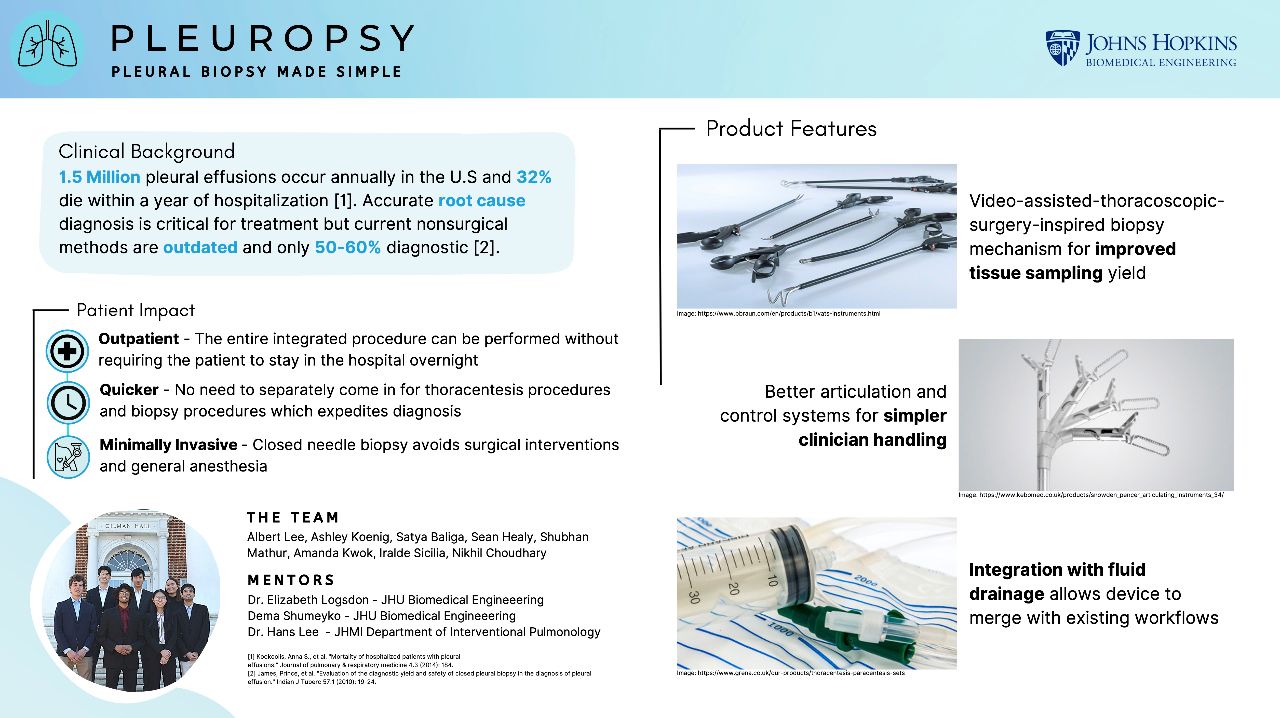Pleuropsy: Pleural biopsy made simple
- Program: Biomedical Engineering
- Course: BME Undergraduate Design Team
Project Description:
Exudative pleural effusion is a pulmonary complication causing abnormal fluid buildup in the pleura: a membrane layer between the lungs and inner chest wall. These effusions are one of the most common pulmonary complications in the US with approximately 750,000 cases annually, 32% of which are fatal within a year of diagnosis. In cases of pleural effusions, identifying the root etiology of the effusion is critical and can range from tuberculosis to cancers. To this end, there exist two standard biopsy methods – the closed pleural biopsy (CPB), and the video-assisted thoracic surgery (VATS) – whose efficacy is determined by pleural sampling amounts. Although CPB is an established nonsurgical modality for collecting pleural tissue, current CPB needles fail to provide reliable tissue samples due to the procedural difficulty and limited sampling capacity. Conversely, the VATS, while being consistently diagnostic, requires hospitalization and the use of general anesthetics. Thus, a clear need exists for a novel pleural biopsy needle that provides more consistent tissue sampling and integrates into current clinical workflow. Our proposed device functions with improved needle manipulation and more efficient tissue collection to improve sampling consistency while remaining a minimally invasive and outpatient procedure. Preliminary prototypes were tested in a physiological model recapitulating key features of the parietal pleura and evaluated for tissue capture yield and efficiency. The increased tissue yield and ease-of-use of the novel percutaneous biopsy needle would help thousands of patients avoid risky and expensive procedures simply to diagnose their exudative pleural effusions each year.



